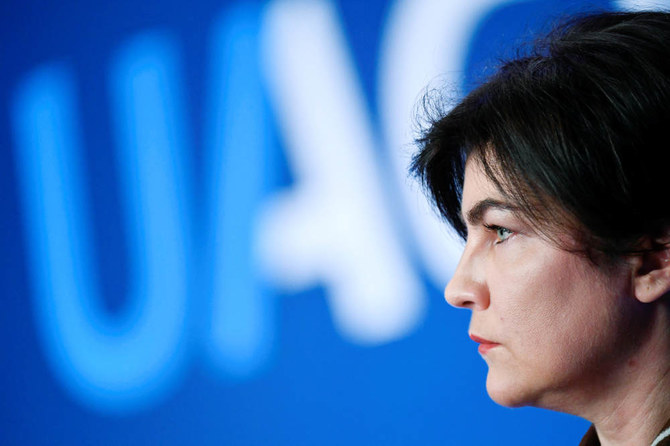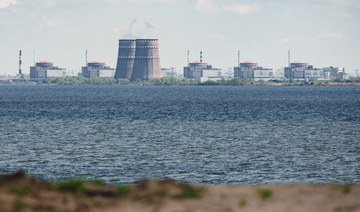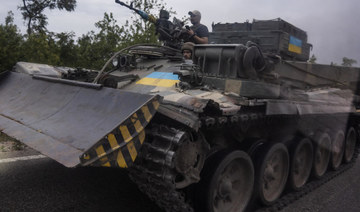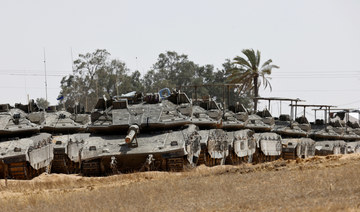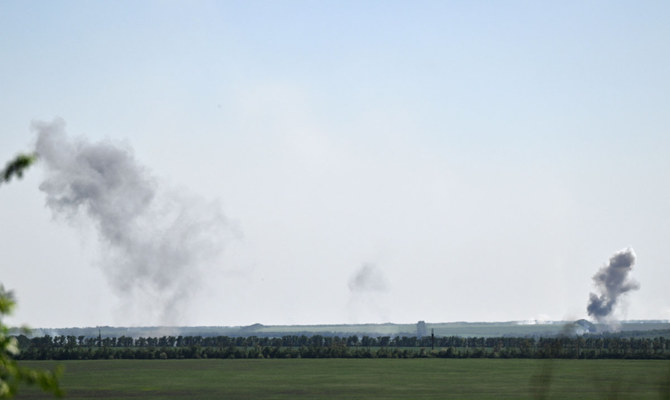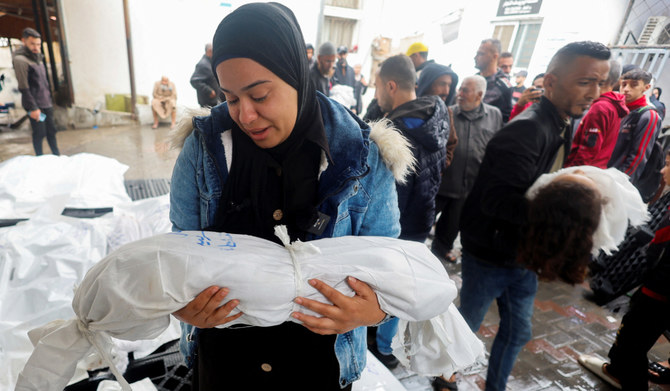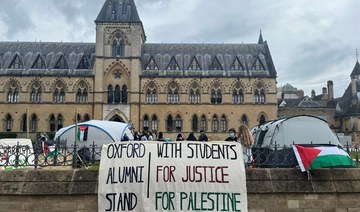VINNYTSIA, Ukraine: As Russian troops pressed their offensive in Ukraine’s east, Ukrainian President Volodymyr Zelensky fired his state security chief and prosecutor general on Sunday, citing hundreds of criminal proceedings into treason and collaboration by people within their departments and other law enforcement agencies.
“In particular, more than 60 employees of the prosecutor’s office and the SBU (state security service) have remained in the occupied territory and work against our state,” Zelensky said.
“Such an array of crimes against the foundations of the state’s national security, and the links recorded between Ukrainian security forces and Russian special services raise very serious questions about their respective leaders,’’ he said in his nightly video address to the nation.
Zelensky dismissed Ivan Bakanov, a childhood friend and former business partner whom he had appointed to head the SBU. Bakanov had come under growing criticism over security breaches since the war began; Politico last month cited several unidentified Ukrainian and Western sources saying Zelensky was looking to replace him.

Destroyed Russian military vehicles are seen at a compound of an agricultural farm, which was used by Russian troops as a military base during Russia's attack on Ukraine, in Kharkiv Region, Ukraine July 17, 2022. (REUTERS)
He also dismissed Prosecutor General Iryna Venediktova, and replaced her with her deputy Oleksiy Symonenko. Venediktova has helped lead war crime investigations.
Meanwhile, Russian missiles hit industrial facilities earlier Sunday at Mykolaiv, a key shipbuilding center in southern Ukraine. Mayor Oleksandr Senkevych said the missiles struck an industrial and infrastructure facility. Mykolaiv has faced regular Russian missile strikes in recent weeks as the Russians have sought to soften Ukrainian defenses.
The Russian military has declared a goal to cut off Ukraine’s entire Black Sea coast all the way to the Romanian border. If successful, such an effort would deal a crushing blow to the Ukrainian economy and trade, and allow Moscow to secure a land bridge to Moldova’s separatist region of Transnistria, which hosts a Russian military base.
Early in the campaign, Ukrainian forces fended off Russian attempts to capture Mykolaiv, which sits near the Black Sea coast between Russia-occupied Crimea and the main Ukrainian port of Odesa. Since then, Russian troops have halted their attempts to advance in the city but have continued to pummel both Mykolaiv and Odesa with regular missile strikes.
Russian Defense Ministry spokesman Lt. Gen. Igor Konashenkov said Sunday that Russian missiles destroyed a depot for anti-ship Harpoon missiles delivered to Ukraine by NATO allies, a claim that couldn’t be independently confirmed.
The Russians, fearing a Ukrainian counteroffensive, also sought to reinforce their positions in the Kherson region near Crimea and in part of the northern Zaporizhzhia region that they seized in the opening stage of the war.
“Given the pressures on Russian manpower, the reinforcement of the south whilst the fight for the Donbas continues indicates the seriousness with which Russian commanders view the threat,” the British Defense Ministry said Sunday.
For now, the Russian military has focused on trying to take control of Ukraine’s eastern industrial heartland of the Donbas, where the most capable and well-equipped Ukrainian forces are located.
Ukraine says its forces still retain control of two small villages in the Luhansk region, one of two provinces that make up the Donbas, and are fending off Russian attempts to advance deeper into the second one, the Donetsk region.
The Ukrainian military’s General Staff said Sunday that Ukrainian troops thwarted Russian attempts to advance toward Sloviansk, the key Ukrainian stronghold in Donetsk, and attacks elsewhere in the region.
Yet Russian officials are urging their troops to produce even more territorial gains. During a visit to the front lines Saturday, Russian Defense Minister Sergei Shoigu issued an order “to further intensify the actions of units in all operational areas.”
The Russian military said it has struck Ukrainian troops and artillery positions in Donbas in the latest series of strikes, including a US-supplied HIMARS multiple rocket launcher. The Russian claims couldn’t be independently verified.
Dmitry Medvedev, deputy head of Russia’s Security Council chaired by President Vladimir Putin, responded to Ukrainian officials’ statements that Kyiv may strike the bridge linking Crimea and Russia, warning that would trigger devastating consequences for the Ukrainian leadership.
“They will momentarily face Doomsday,” Medvedev said Sunday. “It would be very hard for them to hide.”
Medvedev, once touted by the West as more liberal compared to Putin, said Russia will press its offensive until fulfilling its stated goal of “denazifying” and “demilitarizing” Ukraine. He predicted the fighting will “undoubtedly lead to the collapse of the existing regime” in Kyiv.
Zelensky condemned Medvedev’s Doomsday comment as “intimidation” and said it was Russia that would eventually face a “`Day of Judgment.”
“And not in a figurative sense, not as loud talk, but literally,” he said Sunday.
While focusing on the Donbas, the Russians have hit areas all across the country with missile strikes.
In central Ukraine, relatives and friends attended a funeral Sunday for Liza Dmytrieva, a 4-year-old girl killed Thursday in a Russian missile strike. The girl with Down syndrome was en route to see a speech therapist with her mother when the missiles struck the city of Vinnytsia. At least 24 people were killed, including Liza and two boys, ages 7 and 8. More than 200 others were wounded, including Liza’s mother, who remains in an intensive care unit.
“I didn’t know Liza, but no person can go through this with calm,” priest Vitalii Holoskevych said, bursting into tears as Liza’s body lay in a coffin with flowers and teddy bears in the 18th-century Transfiguration Cathedral in Vinnytsia.
‘’We know that evil cannot win,’ he added.
In the Kharkiv region, at least three civilians were killed and three more were injured Saturday in a pre-dawn Russian strike on the city of Chuhuiv, just 120 kilometers (75 miles) from the Russian border, police said.
One resident of the apartment building that was hit said she was lucky to have survived.
“I was going to run and hide in the bathroom. I didn’t make it and that’s what saved me,” said Valentina Bushuyeva. Pointing to her destroyed apartment, she said: “There’s the bathroom — explosion. Kitchen — half a room. And I survived because I stayed put.”



